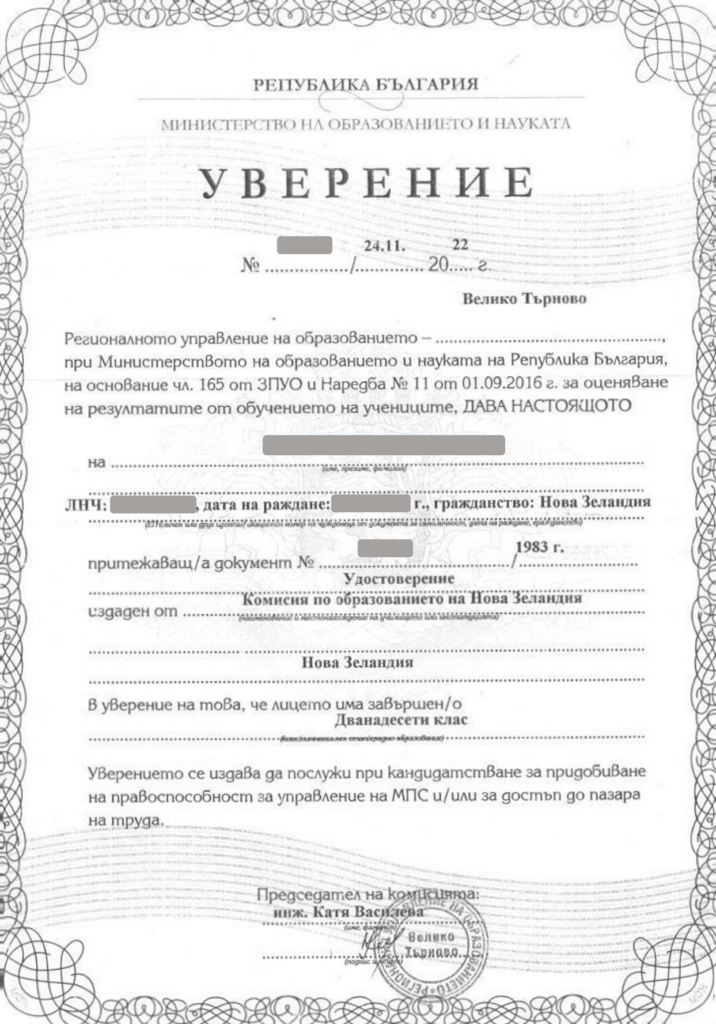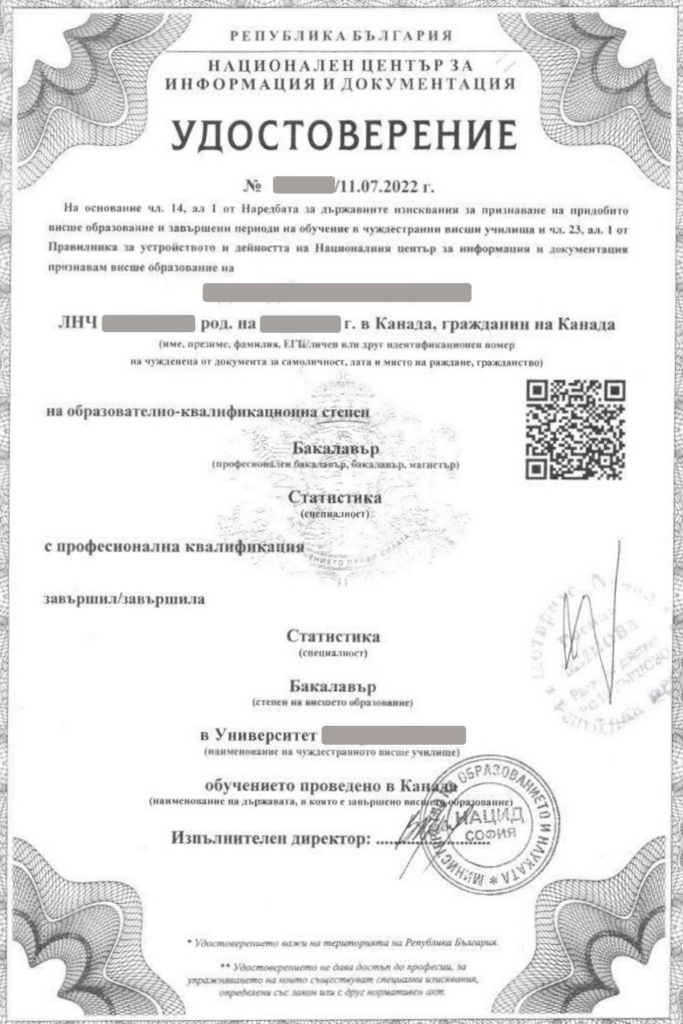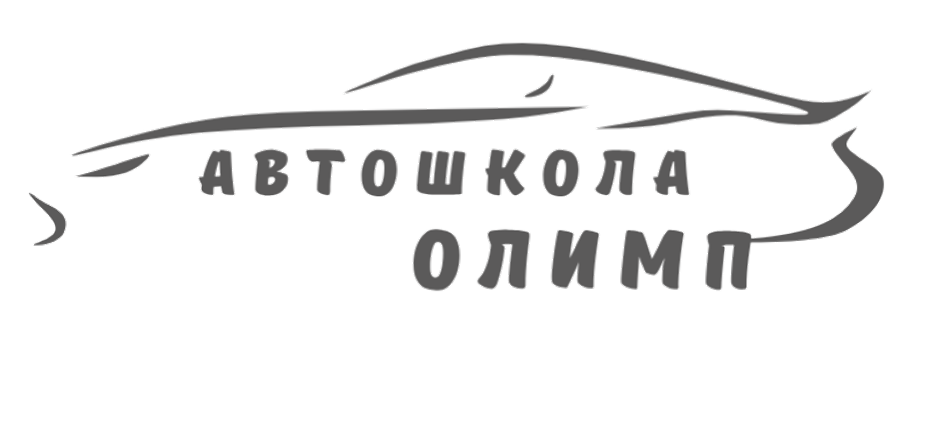How to Obtain a Driving License as a Foreigner in Bulgaria?
Are you a foreigner who wishes to enroll in a driving course in Bulgaria? Thanks to the kind assistance of Andrey Popov, a founder and instructor at SIGMA Driving Academy in Sofia, we can present you with all the necessary details regarding the requirements. Without further ado, here’s what you need to do:
ID: To begin with, as a foreigner, you must first ensure that you have been a resident of Bulgaria for at least six months and hold a residence permit (ID card). This is a necessary step to start the course.
Certificates: Next, you must acquire the education certificate for the course. There are two options. You can opt for the education certificate with either your high school diploma or university degree.
Certificate 1: High school diploma – For the first type, which requires a high school diploma, the process generally takes around 30 days.

To acquire this certificate, you must present your high school diploma along with the transcript, which indicates your grades and subjects. Depending on the country where you’ve obtained your diploma, you may be required to get an apostille (an official government-issued certificate added to your documents so they will be recognised when presented in Bulgaria). You can usually obtain an apostille from the Ministry of Foreign Affairs of the country that issued the diploma.
After this, you must obtain a notarised translation of your high school diploma and transcript (by a sworn translator), which you can get from any company that offers legalised translations.
Finally, you must visit the Regional Education Management Department with the original diploma and transcript, the translation, your ID card, and copies of all aforementioned documents.
Please note that some countries do not require an apostille, including Austria, Azerbaijan, Albania, Algeria, Armenia, Belarus, Vietnam, Georgia, Greece, Spain, Italy, Yemen, Cyprus, China, North Korea, Cuba, Kuwait, Libya, Lebanon, North Macedonia, Mongolia, Poland, Romania, Russia, Syria, Uzbekistan, Ukraine, Hungary, France, Czech Republic, Slovakia, Serbia, Bosnia and Herzegovina, Croatia, Montenegro, and Slovenia.
Although an apostille is not necessary for these countries, you still need a notarised translation. This is due to the legal agreements they have with Bulgaria, which exempts them from requiring an apostille.
Certificate 2: University degree – Certificate number two requires a university degree and may take up to two months, depending on the country of issuance. To obtain this certificate, you need your university degree and the transcript showing your grades and subjects.

If your degree is issued by a country-party to the Lisbon Recognition Convention, or in a member-state of the European Union, Iceland, Liechtenstein, Norway or Switzerland, you do not need an apostille. However, if you do require an apostille, the process can be costly and time-consuming.
After obtaining the necessary documents, you must have a sworn translator make a translation of your university degree and the transcript. If your degree is from a country-party to the Lisbon Recognition Convention or in a member-state of the European Union, Iceland, Liechtenstein, Norway or Switzerland, you do not need to notarise your translation, as it is only required to be translated by a sworn translator.
Finally, take your original degree, transcript, and the translation to the National Center for Information and Documentation (NACID) to apply for your education certificate, which will be issued via academic recognition.
The course: If you are an active driver and you simply wish to exchange your non-European driving licence with a Bulgarian one, you can get an exclusive offer for express theoretical and practical education.
The course will be conducted individually or in a group and includes 6 driving lessons. Even though you can drive, the idea is to become acquainted with the car, routes, road signs, and priority and non-priority roads. There is a theoretical and practical exam in the end.
If, however, you don’t have a driving licence or you want to replace your licence with a Bulgarian one but you haven’t driven for a long time and you need more practice, then you need to take the full course.
It’s worth noting that students must be able to understand Bulgarian directions for the official driving test.
Edited by OLIMP Driving School
